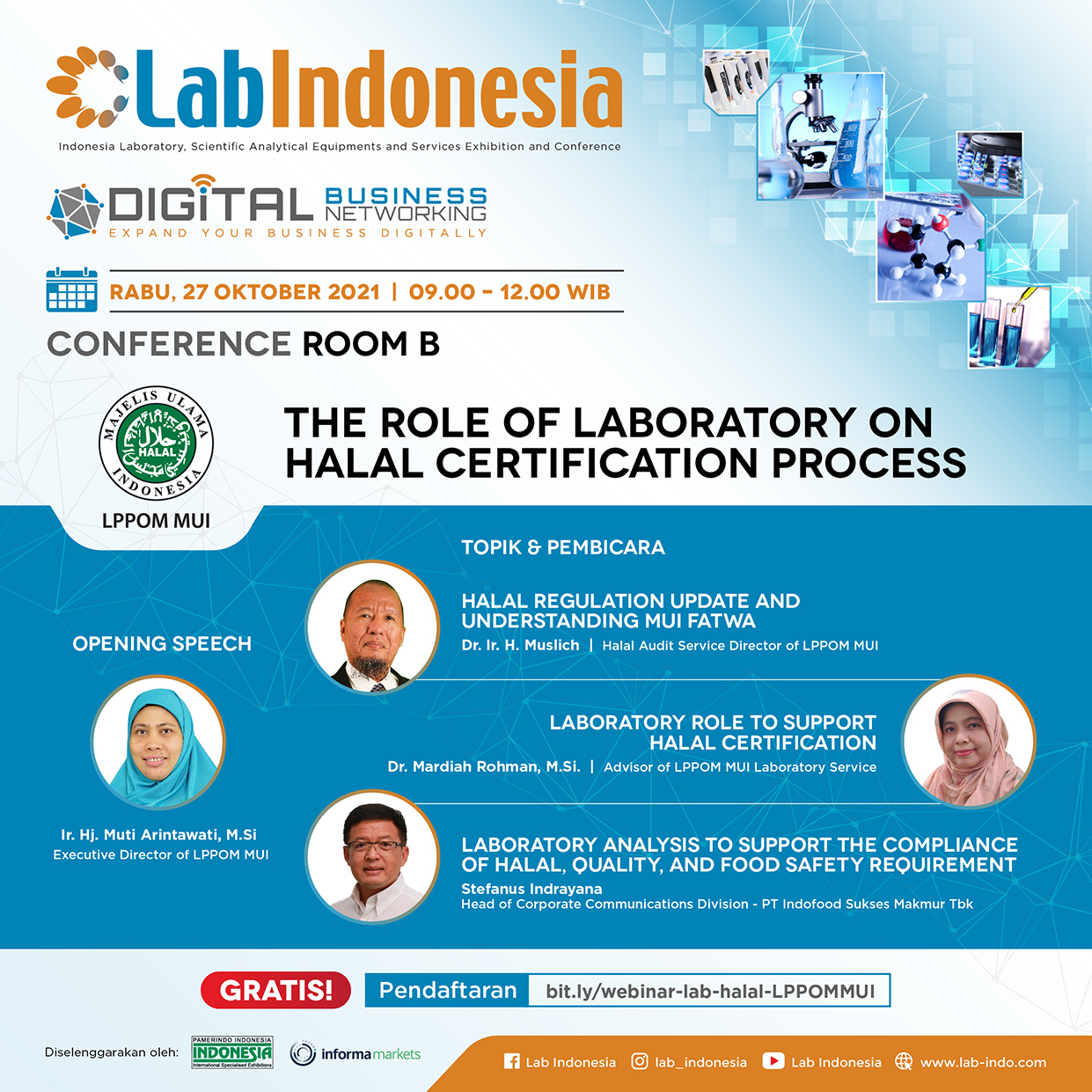
THE ROLE OF LABORATORY ON HALAL CERTIFICATION PROCESS
JAKARTA, INDONESIA / AGILITYPR.NEWS / October 26, 2021 / Halal laboratories have an important role in halal certification, the results will be one of the foundations for determining the halal status of products. This was stated by the Executive Director of the Assessment Institute of Foods, Drugs, and Cosmetics of the Indonesian Council of Ulama (LPPOM MUI), Ir. Muti Arintawati, M.Si in the opening of the halal webinar with the theme "The Role of Laboratory on Halal Certification Process".
The webinar, which will be held on Wednesday, October 27, 2021, at 09.00 – 12.00 AM Jakarta Time, is a collaboration between LPPOM MUI, Lab Indonesia and PT Pamerindo Indonesia. The speaker in this webinar are Halal Audit Service Director of LPPOM MUI, Dr. Ir. Muslich, M.Si.; Advisor of LPPOM MUI Laboratory Service, Dr. Ir. Mardiah Rahman, M.Si; and Head of Corporate Communications PT Indofood CBP Sukses Makmur Tbk., Stefanus Indrayana.
In the topic "Halal Regulation Update and Understanding MUI Fatwa", Muslich explained that LPPOM MUI as the Halal Inspection Body (LPH) plays the role for examining halal products from a scientific perspective. This aspect is also identified from the laboratory results.
"The results of the LPPOM MUI examination will be given to the MUI Fatwa Commission to further determine its halal status. The role and position of the MUI Fatwa Commission have been recorded in Act Number 33 of 2014 concerning Halal Product Assurance (JPH Act),” said Muslich.
Mardiah Rahman who present "Laboratory Role to Support Halal Certification" explained that LPPOM MUI laboratory is a leader of halal testing laboratory and the first pig DNA testing laboratory in Indonesia, that has been accredited to ISO17025. This accreditation provides formal recognition of the competence of the laboratory so that the credibility of the laboratory is trusted.
“One of the roles of the laboratory is to conduct research and collect data to support fatwa decisions. Especially for ensuring the products do not use haram/impure ingredients which are prohibited in Islam. As well there is no mixing or contamination between halal and haram/unclean ingredients and/or products,” explained Mardiah.
Meanwhile, Stefanus Indrayana in the topic "Laboratory Analysis to Support The Compliance of Halal, Quality, and Food Safety Requirements" states that compliance with regulations for both domestic and export destination countries is essential and critical for the food industry, especially on quality, safety, nutrition and halal.
“As proof of compliance, the laboratory is very important to be able to provide accurate and reliable analysis, therefore it is recommended to be fully competent on ISO17025 as a standard,” he said. (*)

Join us at LPPOM MUI – Conference Virtual Session! Register here now: https://bit.ly/webinar-lab-halal-LPPOMMUI
Contacts
Nadia L. Masduki
Corporate Communication LPPOM MUI
corcomlppom@halalmui.orgPhone: +6281218033606 Mobile: +6281218033606
https://www.halalmui.org/mui14/